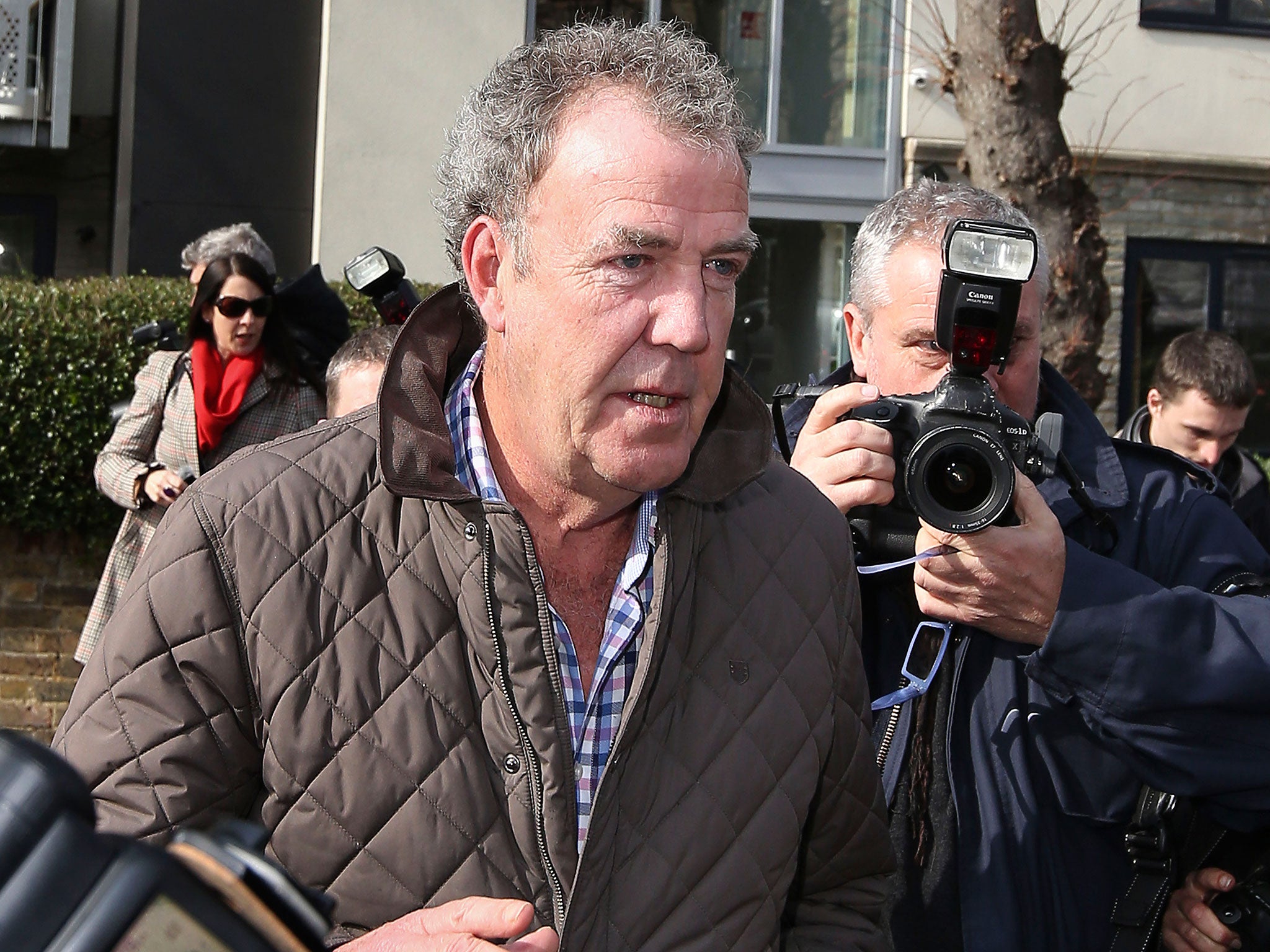Jeremy Clarkson 'punch': High-profile stars are used to being hero-worshipped – and that can make them flip, says psychologist
The presenter has been suspended pending an investigation by the BBC

Your support helps us to tell the story
From reproductive rights to climate change to Big Tech, The Independent is on the ground when the story is developing. Whether it's investigating the financials of Elon Musk's pro-Trump PAC or producing our latest documentary, 'The A Word', which shines a light on the American women fighting for reproductive rights, we know how important it is to parse out the facts from the messaging.
At such a critical moment in US history, we need reporters on the ground. Your donation allows us to keep sending journalists to speak to both sides of the story.
The Independent is trusted by Americans across the entire political spectrum. And unlike many other quality news outlets, we choose not to lock Americans out of our reporting and analysis with paywalls. We believe quality journalism should be available to everyone, paid for by those who can afford it.
Your support makes all the difference.Jeremy Clarkson has been suspended by the BBC following the now-infamous "fracas" with a Top Gear producer, which allegedly ended with Clarkson "punching" his colleague. But how does workplace antagonism spiral out of control in the first place?
Dr Sandi Mann, senior psychology lecturer at The University of Central Lancashire and author of Manage Your Anger (Hodder & Stoughton), says that stress-induced aggression is a more common problem among celebrities or people in high-powered jobs.
"These are people who are used to things going right," she explains. "The higher up you are, the more likely you are to be hero-worshipped or treated as important, so the more likely you are to have higher expectations of things being ‘as they should be’."
While it varies on a case-by-case basis, Mann argues that when people pay more attention to you, you may become less patient, which can sometimes spill over into aggression.
"When people stop you trying to achieve things, it makes you angry," she explains. "If you’re in the public eye and a lot of people agree with what you say, you can get carried away with things being done 'right', whereas if you’re lower down you just don’t have those expectations.
Mann's advice for handling stress includes taking full days away from social media and answering emails, and recognising your anger triggers. Perhaps advice that's just as relevant for TV presenters as for the rest of us.